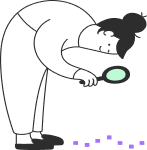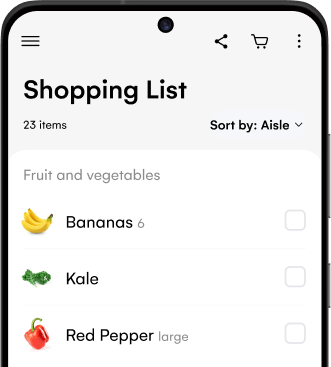Protein is the backbone of the diet for anyone who is looking to build lean muscle mass. And although other macros like carbs and fat do help you build muscle to some extent, protein is the one macro you really can’t go without. But not all proteins are created equal. Finding the best protein sources for muscle building is important if you’re serious about getting toned and sculpted.
So, where do you start?

Why is protein so important?
Of course, you should still eat a balanced and varied diet while including all the food groups. Not only does it ensure you get enough vitamins and minerals to stay healthy, but it also ensures you’re providing your body with adequate energy and promotes better adherence to your eating plan.
That said, you’ll definitely want to include quality protein as part of the right balance of macros for your need. But which are the best protein sources for muscle building? Does it matter if you prefer pork or chicken or beef? Or if you’re vegan and can’t eat eggs and meat?
Don’t lose your grocery list with a free Samsung Food Account

The best protein sources to choose for muscle mass
If you’re aiming to up your protein which the best sources for building muscle, you’ll want to use this as a cheat sheet. Each of them are versatile, easy to incorporate into your meal plan, and provide you with plenty of muscle-building fuel.
These recommendations focus on complete proteins, which contain all nine of the essential amino acids your body can’t make. For muscle building, there are three particular amino acids to pay attention to: the branched chain amino acids (BCAAs) which are leucine, isoleucine, and valine. If you want to read more about muscle building and diet, check out these articles:
- What is muscle protein synthesis?
- Want to build muscle? Why protein is essential
- Can carbs and fat help you build muscle?
- What is a healthy muscle mass to aim for?
Now, onto those winning protein sources for muscle building!

Animal sources of protein
All animal sources of protein are complete. So if you don’t have any dietary restrictions and eat everything, it makes sense to prioritize high quality animal proteins in your diet.
What are the best sources of animal proteins, as far as muscle building goes? “All animal foods like beef, pork, poultry, fish, dairy, and eggs are considered complete proteins. But for muscle building, you always want to prioritize lean protein – and that’s a good rule for general health too. While a fatty lamb shank includes all nine amino acids, it’s not going to offer you as much bang for your buck in terms of protein and overall calories as a skinless chicken breast would.
Here are some of the better choices.
Eggs
There’s a reason that raw eggs are so strongly associated with bodybuilders. Though we suggest you cook them, there’s no doubting that eggs are great sources of protein, offering around 6g per large egg, a good dose of that being the BCAAs. And they’re versatile too!
If you eat them regularly, you can also up the protein while limiting calories and cholesterol by omitting the yolk on every other egg. So you could use two whole eggs and two egg whites for your scramble in the morning for added protein without any of the drawbacks of excessive egg consumption.
Chicken breast
The chicken, broccoli, and brown rice plate is famously associated with packing on the muscle for good reason. It provides healthy carbs, plenty of vitamins, and good old protein without extra calories. Chicken breast is a really popular source of protein for people trying to build muscle and lose weight alike.
And it’s not hard to see why either. It contains around 27 grams of protein, 0 grams of carbs and 3 grams of fat. That makes it a lean, healthy source of protein which is easy to find, easy to cook, and very versatile. Turkey is a similar option with much the same benefits of chicken: lean, cost-effective, and versatile.
Dive into our content and find culinary inspiration

Salmon
A 3-ounce serving of salmon contains around 22 grams of protein, 0 grams of carbs and 7 grams of fat. Salmon is a good source of protein that is also rich in omega-3 fatty acids, which can promote muscle recovery and reduce inflammation.
Many people try to cut out fat if they’re building muscle, but it’s an essential part of your diet. Including it means you can readily absorb nutrients from other foods – and salmon is a wonderful source of healthy unsaturated fats.
If your budget doesn’t stretch to salmon, other good choices include trout, tinned tuna, yellowtail, and tilapia. But in all honesty, almost all fish pack a good amount of protein.
Lean beef
A 3-ounce serving of beef contains around 22 grams of protein, 0 grams of carbs and 9 grams of fat.
Beef is a good source of protein and essential amino acids, but it can be high in saturated fat. To get the best of both worlds, you want to opt for lean cuts like fillet, beef shin, and lean ground beef.
Whey protein
Whey protein is a fantastic source of protein for after your workout. This is because it is a complete protein which contains leucine, which is important in muscle protein synthesis. One serving of whey protein powder typically contains around 24 grams of protein.
Plus, it’s quickly absorbed by the body and a bit easier to stomach than a piece of steak or few hardboiled eggs after you’ve had a hard exercise session.

Vegan and non-animal sources of protein
If you can’t or don’t eat meat and animal products, that doesn’t mean you can’t build muscle. It does mean you might need to be a little more careful in your approach to make sure you’re getting all of the essential amino acids. You might also need to supplement your whole food protein intake with a vegan protein shake if you find you’re struggling to meet your macro goals.
Soy
Soy is a complete protein, which makes it a great choice for vegetarians and vegans. This goes for all forms of soybean: tofu, tempeh, edamame, soy protein powder, and even soy milk. Raw soybeans offer a whopping 36g of protein for 100g of beans.
Pea protein
Not everybody tolerates soy too well, and if you’re looking for a supplemental source of protein, peas might be the way forward. One scoop of pea protein powder typically contains around 24 grams of protein.
Because it’s easy to digest and is a complete protein, it’s a great choice for anyone with dietary restrictions and can be useful for a post-workout snack too.

Beans and legumes
Lentils, black beans (and others like kidney beans and butter beans), and chickpeas are all high-protein options which also add carbs and valuable vitamins and minerals. Plus, you’ll get the added benefits of their high fiber content.
And there’s a reason that good old beans and rice is such a staple. It’s a great source of protein for building muscle and providing energy. Not only is it affordable and versatile, but when you pair rice with beans/lentils/chickpeas you get all nine of your essential amino acids even though neither rice nor legumes are complete sources of protein by themselves.
Quinoa
We normally think of quinoa more as a grain and source of carbs than of a protein source. And that’s true – half a cup of quinoa offers 18 grams of carbs. But on top of that, it also provides 4 grams of protein. On top of that, it’s a complete protein and contains plenty of valuable nutrients. So for an extra protein boost, try swapping rice or cous cous for quinoa.
Hemp seeds
Hemp seeds often don’t form a major part of people’s diets, but if you’re looking for more vegetarian and vegan protein sources for building muscle, it’s time for that to change. They’re yet another source of complete protein which is vegan-friendly, and only three tablespoons of these little powerhouses provides 9 grams of protein. On top of that, they offer plenty of omega-3 and omega-6 fatty acids, which can promote muscle recovery and reduce inflammation. For those who are looking to lose weight though, it’s wise to keep your intake moderate as those same three tablespoons also provide 12 grams of fat.

The bottom line
It’s important to note that consuming enough protein is crucial for muscle growth, but it’s not the only factor. Strength training exercises, adequate caloric intake, and enough rest and recovery are also important aspects of building muscle.
Incorporating a variety of protein sources into your diet, like those mentioned above, can help ensure you’re getting the essential nutrients your body needs for muscle growth and repair. Download Samsung Food to find new and fresh ways to prepare them so you don’t get bored of your winner winner chicken dinner every night!


